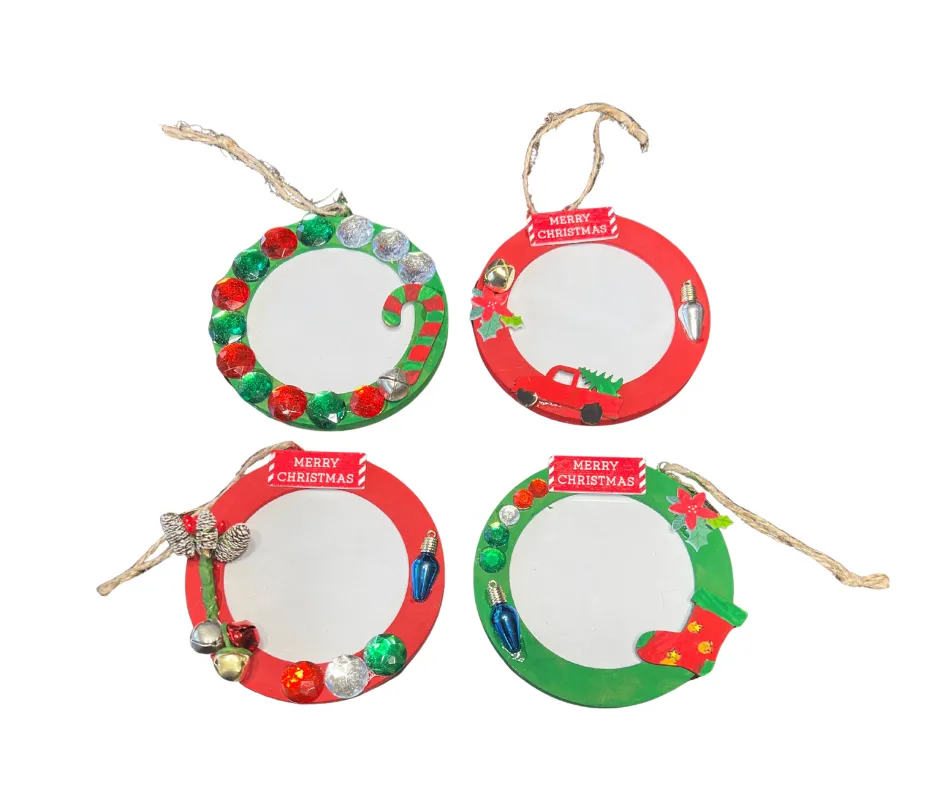The Life with Justin Stephens Blog

August 30, 2024 -Discover the Healing Power of Letting Go

The Power of Forgiveness: A Journey Towards Healing
In our fast-paced lives, the importance of forgiveness can often be overlooked. This blog delves into a heartfelt message about the significance of releasing grudges and embracing love, aiming to inspire readers to reflect on their own lives and relationships.
Morning Reflections
Every day offers a new opportunity for reflection. Mornings are particularly powerful moments to set intentions and seek clarity. As you sip your coffee or tea, take a moment to breathe deeply and consider your feelings towards those around you.
What grudges are you holding onto? Each grudge clings to your spirit like an anchor, weighing you down. Recognizing these burdens is the first step toward liberation.
Setting the Stage for Forgiveness
Forgiveness is not just a gift to others; it is a profound act of self-care. It opens the door to healing and growth. To set the stage for forgiveness, first acknowledge your feelings. Identify the pain and hurt caused by others, but do not let it define you.
Recognize your emotions: Understand what you feel and why.
Reflect on the impact: Consider how holding onto resentment affects your daily life.
Make a conscious decision: Choose to forgive, not for others, but for your own peace.
The Chains of Grudges
Grudges act as chains that bind your soul. They prevent you from experiencing true joy and connection. Letting go of these chains is essential for your emotional and spiritual well-being.
Consider this: every moment spent harboring anger is a moment lost to happiness. Each chain you break opens up space for love, compassion, and understanding.
Understanding the Cost of Holding Grudges
Holding onto grudges comes with a steep price. It affects not only your mental health but also your physical well-being. Stress and negativity can manifest in various ways, leading to anxiety, depression, and even health issues.
Emotional Toll: Constantly revisiting past hurts drains your emotional energy.
Physical Manifestations: Resentment can lead to stress-related health problems.
Impact on Relationships: Grudges create barriers that hinder authentic connections with others.
The Flow of Grace
Grace is a powerful force that flows freely when we choose forgiveness. It allows us to release negativity and embrace positivity. The more we practice grace, the easier it becomes to forgive.
Imagine grace as a river. When you let go of grudges, you open the dam, allowing the river to flow. This flow nourishes your soul, bringing healing and vitality.
Ways to Invite Grace into Your Life
Practice Gratitude: Acknowledge the good in your life and express appreciation.
Engage in Prayer or Meditation: Connect with a higher power to seek guidance and strength.
Surround Yourself with Positivity: Engage with uplifting people and environments.
Strength Through Forgiveness
Forgiveness is not a sign of weakness; it is a testament to your strength. It takes courage to confront your feelings and choose to release them. Each act of forgiveness builds resilience and character.
When you forgive, you reclaim your power. You no longer allow past hurts to dictate your present or future. Instead, you become the author of your own story.
Building Resilience through Forgiveness
Embrace Vulnerability: Acknowledge your pain and allow yourself to feel it.
Learn from Experiences: Reflect on what each situation has taught you about yourself.
Empower Yourself: Use forgiveness as a tool to enhance your emotional intelligence.
Intentionality in Communion
Intentionality is key in maintaining a strong connection with yourself and others. It requires conscious effort to foster relationships and cultivate love. Being intentional in your actions can lead to deeper communion with those around you.
When you prioritize love and understanding, you create an environment where forgiveness can flourish. This intentional approach allows for open communication and strengthens bonds.
Practices for Intentional Living
Daily Check-Ins: Set aside time to reflect on your feelings and relationships.
Communicate Openly: Share your thoughts and feelings with honesty.
Act with Purpose: Make decisions that align with your values and intentions.
Catching the Troubling Foxes
In the journey of forgiveness, it’s essential to catch the “troubling foxes” that threaten to derail your progress. These are the small, often unnoticed distractions that can undermine your efforts.
These foxes may appear as negative thoughts, toxic relationships, or unresolved conflicts. Identifying and addressing them is crucial to maintaining your peace.
Identifying Troubling Foxes
Negative Self-Talk: Challenge and replace harmful thoughts with positive affirmations.
Toxic Relationships: Evaluate your relationships and distance yourself from negativity.
Unresolved Conflicts: Address issues directly rather than allowing them to fester.
Strategies for Removal
Set Boundaries: Protect your emotional space by establishing clear boundaries.
Seek Support: Reach out to friends or professionals for guidance and encouragement.
Practice Mindfulness: Stay present and aware of your thoughts and feelings to catch issues early.
Understanding Life's Challenges
Life presents us with numerous challenges that test our resilience. Each obstacle can feel overwhelming and disheartening. Yet, these challenges also provide us with opportunities for growth and transformation.
When faced with adversity, it's essential to recognize the lessons embedded within each experience. Embracing these lessons allows us to evolve and emerge stronger.
The Nature of Challenges
Challenges are an inevitable part of the human experience. They come in various forms: personal struggles, relationship issues, or professional setbacks. Understanding their nature can help us navigate through them more effectively.
Temporary Setbacks: Remember that challenges are often temporary and can lead to long-term benefits.
Opportunities for Growth: Each challenge carries the potential for personal development and deeper insights.
Shared Experiences: We are not alone; everyone faces challenges. Sharing our experiences can foster connection and support.
Reframing Our Perspective
How we perceive challenges can significantly affect our emotional response. By reframing our perspective, we can transform obstacles into stepping stones.
Instead of viewing challenges as burdens, consider them as invitations to learn. This shift can enhance our resilience and foster a positive outlook.
The Role of Love in Our Lives
Love is the cornerstone of our existence. It connects us, nurtures us, and empowers us to forgive. By understanding the role of love, we can cultivate deeper relationships and foster healing.
Love as a Healing Force
Love has the power to heal wounds that seem insurmountable. It creates an environment where forgiveness can flourish.
When we approach relationships with love, we open ourselves to understanding and compassion. This openness can mend broken bonds and restore harmony.
Ways to Cultivate Love
Practice Active Listening: Give your full attention to others and validate their feelings.
Show Appreciation: Regularly express gratitude for the people in your life.
Engage in Acts of Kindness: Small gestures can have a profound impact on relationships.
Unconditional Love
Unconditional love is the purest form of affection. It requires no prerequisites and expects nothing in return. This type of love fosters genuine connections and encourages forgiveness.
By embodying unconditional love, we create a safe space for ourselves and others to heal. This allows relationships to thrive, even amidst challenges.
Personal Stories of Forgiveness
Personal stories of forgiveness illustrate the transformative power of letting go. They serve as powerful reminders of the freedom that forgiveness brings.
Examples of Forgiveness
Many individuals have faced profound hurt yet chose to forgive. Their stories inspire us to reflect on our own capacity for forgiveness.
Reconciliation After Betrayal: A story of two friends who overcame deep betrayal through understanding and dialogue.
Healing from Family Conflict: A family member who chose to forgive after years of estrangement, leading to a renewed relationship.
Forgiving a Mentor: An individual who learned to forgive a mentor for a painful critique, resulting in personal growth.
Lessons Learned from Forgiveness
Each story of forgiveness reveals valuable lessons. They remind us that forgiveness is a gift we give ourselves.
Empowerment: Forgiveness empowers us to take control of our emotional well-being.
Perspective Shift: It allows us to see the bigger picture and understand others' struggles.
Building Resilience: Each act of forgiveness strengthens our ability to face future challenges.
A Call to Forgive
Forgiveness is not just an option; it is a necessity for our peace and happiness. It is a conscious choice we must make to liberate ourselves from the chains of resentment.
The Process of Forgiveness
Forgiveness is a journey that requires intention and commitment. It involves several steps that can guide us toward healing.
Recognize the Hurt: Acknowledge the pain and validate your feelings.
Reflect on the Impact: Consider how holding onto anger affects your life.
Make the Choice to Forgive: Decide to release the burden for your own peace.
Communicate When Possible: If safe, express your feelings to the person who hurt you.
Let Go: Release the hold that the past has on you.
Empowering Yourself Through Forgiveness
Forgiveness empowers us to reclaim our narrative. It allows us to move forward without the weight of past grievances.
By forgiving, we break the cycle of negativity, opening the door to new possibilities and relationships.
Conclusion: Embracing Peace
Embracing peace begins with the act of forgiveness. It is a conscious decision to let go of resentment and cultivate love. This journey leads to profound personal transformation.
As we forgive, we create space for joy, understanding, and deeper connections. Ultimately, the practice of forgiveness enriches our lives and those around us.
Steps to Embrace Peace
Practice Mindfulness: Stay present and aware of your thoughts and feelings.
Engage in Reflective Practices: Journaling or meditation can help clarify your emotions.
Surround Yourself with Support: Build a community that encourages love and forgiveness.
Frequently Asked Questions
What if I don't feel ready to forgive?
It's okay to take your time. Forgiveness is a process, and you can start by acknowledging your feelings and taking small steps toward healing.
How can I forgive someone who hasn't apologized?
Forgiveness is for your benefit. You can choose to forgive even if the other person hasn't taken responsibility for their actions.
Will forgiving someone mean I have to forget what happened?
Forgiveness does not mean forgetting. It means releasing the hold that the past has on you, allowing you to focus on the present and future.
Can forgiveness improve my relationships?
Absolutely. Forgiveness fosters understanding and connection, paving the way for healthier relationships.
Daily Podcast:

Daily Video Journal:
Daily Journal Transcript:
Good morning. Good morning. Good morning.
It is August 30, 2024. We've almost made it to September, guys. All right.
Today's devotional. Freely pour out my mercy. I long to be merciful to those who turn to me.
My grace has restored your soul, and your life's portion now overflows. I created you to be merciful to the guilty, gracious to the unworthy, and kind to those who mistreat you freely. You have been given these virtues.
Now freely give them away and watch them multiply. Never forget where you've come from. Never take my mercy for granted.
Always remember that I alone am the one who has saved you from destruction. I love to take lives and change them with my glory. Now I want you to do the same.
I want you to release my presence everywhere you go. Don't ignore my gentle nudges when you see those who need something you have. Don't turn your nose up at those who are in error or who are different from you.
I don't condemn the one who turns to me. I never withhold forgiveness from those who repent. Mercy multiplies when you take what I've given you and pour it out freely to those in need.
How satisfied you are when you demonstrate tender mercy. For tender mercy will be demonstrated to you. What bliss you experience when your heart is pure.
For then your eyes will open to see more and more of God. How blessed you are when you make peace. For then you will be recognized as a true child of God.
Matthew five seven nine. Freely pour out his mercy. I think that is such a great message for today.
He has already given us everything we need because we exist. Because we are still alive and fighting the fight. It is our choice to pour that gift out on others.
It is our choice to help and support others as life marches on. Mercy is a gift. It's a gift that is given.
It's never taken. You can never take mercy. It can only be given unto you.
So what are you doing to give mercy? What are you doing to give understanding? That's what I want you to think about today. What can we do to give mercy to those around us? To give understanding and give hope? Because together, we're all in this. Together, and together we can make a difference.
So with that, I'm going to go get to work. I hope you guys have a fantabulous day, and we will talk to you all soon. Bye.















